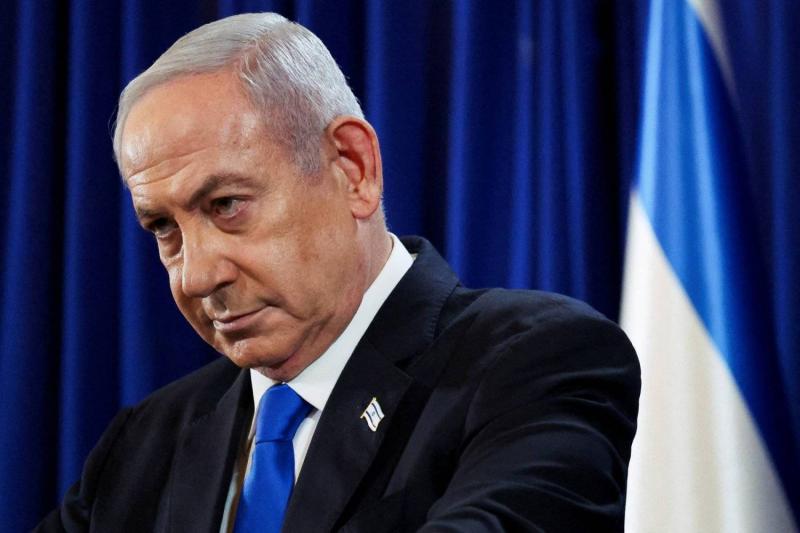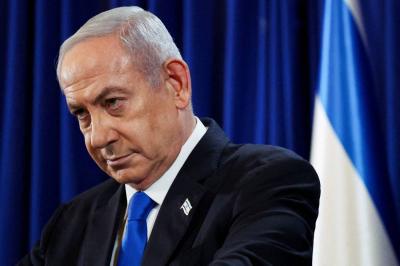The Israeli government continues to closely examine its dealings with the U.S. administration ahead of the American presidential elections on November 5. This indicates that developments will soon reveal themselves in the U.S.-Israeli relationship, as this administration is determined to make breakthroughs regarding current events for reasons related both to domestic issues and the fear of the situation remaining unchanged despite ongoing developments. This could lead to implementing certain obligations while postponing others or fulfilling them amid the instability of the current Israeli government. This reality will push Israeli Prime Minister Netanyahu to reconsider his political calculations in the coming period, regardless of the ongoing war in Gaza.
The growing Israeli divide will significantly increase pressure on Netanyahu. His government and the war council are under scrutiny, and it seems clear that the disagreement isn't about the war itself but rather settling scores between adversaries during peacetime and allies during wartime. Netanyahu will continue to face mounting pressure from his far-right allies, who have threatened to resign if he proceeds with proposals for a ceasefire. Netanyahu's far-right coalition partners, National Security Minister Itamar Ben Gvir and Finance Minister Bezalel Smotrich, have insisted that the government should not reach any agreements and continue fighting until the ultimate goal of destroying Hamas is achieved.
Netanyahu will also lose his centrist partners, who helped him avoid a scenario of escalation that could lead to greater international isolation and deepen the existing crisis with the U.S. In reality, Netanyahu has alternatives to escalation, such as distancing from the far-right and accepting opposition support for his government in exchange for a ceasefire and agreements for the release of hostages. Another option is dissolving the Knesset and betting on elections; however, dissolving the Knesset could have unpredictable consequences.
Recent polls indicate that three-quarters of Israelis support Netanyahu's departure, whether now or after the war, and the continuation of any prisoner exchange deal will depend on public opinion. If Netanyahu finds that his standing improves with potential early elections, he will complete the deal. However, if he concludes that his support has declined, he may return to war. It is no secret that the cohesion of the government is threatened by the conscription law, which aims to compel Haredi Jews (a religious sect that has historically rejected conscription since the establishment of Israel in 1948) to serve in the army. As long as the conscription law remains unresolved in the Knesset and its details postponed, this government will continue.
On the American level, the U.S. administration is working to recover the bodies of three Americans believed to have been killed during the October 7 attack. There is American conviction that Hamas may have an incentive to reach a unilateral deal with Washington, as it might escalate tensions in U.S.-Israeli relations and apply more internal political pressure on Netanyahu, especially since President Biden faces pressure to end the fighting in Gaza.
The Democratic Party is divided over its support for the Israeli attack on the Palestinian territory, with voters in key battleground states threatening not to support Biden in the upcoming November elections against Republican candidate former President Trump. Any U.S.-Arab attempts to reach a ceasefire if an agreement is reached could hinder Biden's initiative and disrupt the implementation of the Security Council's decision on the Israeli war on Gaza. This may encourage further incursions into densely populated areas in Rafah and the central governorate camps and possibly redraw the map for the "day after," which the U.S. still believes should be without direct Israeli intervention.
In summary, the roadmap to end the war in Gaza proposed by the U.S. President based on an Israeli suggestion reflects the differing perspectives of each party regarding its goals. Hamas can assert that it has achieved a significant accomplishment by convincing the U.S. administration to demand that Israel halt the war and keep Hamas in power in the Gaza Strip—a primary goal since October 7. The chances of imposing this on Israel have notably increased. Thus, changes make it possible for the Israeli government, alongside the majority of Israelis—both supporting and opposing the continuation of the war in Gaza—to be prepared to proceed with the first phase of the prisoner exchange deal, despite the high costs involved, and to open discussions on the second and third phases. However, there is clear rejection of accepting a request to end the war and keep Hamas in power. In this context, Biden's policy will likely continue to oscillate between traditional support for Israel and attempts to pressure it to alter some of its current stances.




